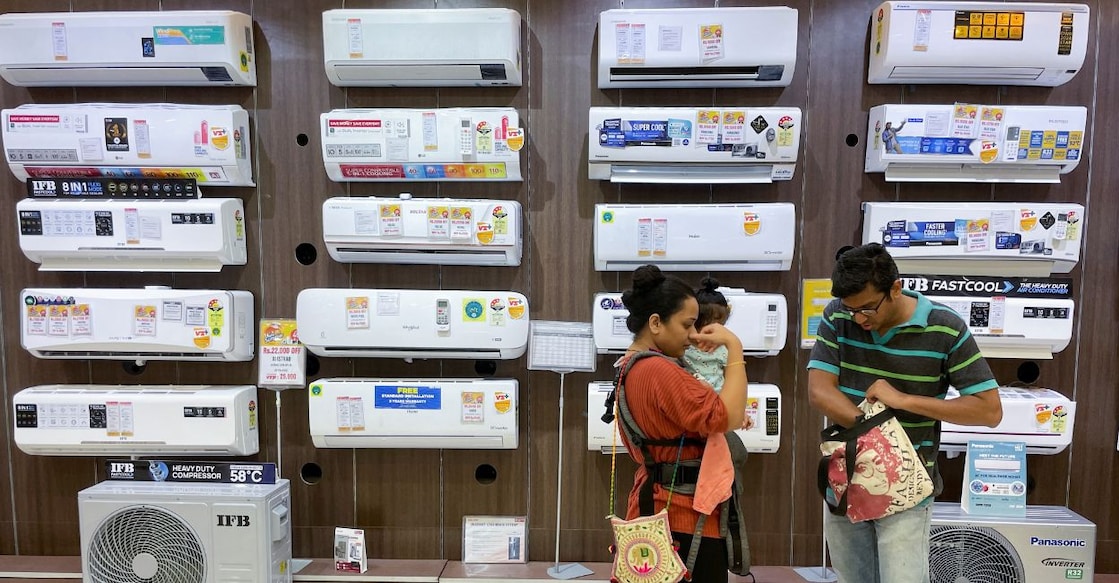Retail inflation comes down to 11-month low of 5.88% in Nov

Mail This Article
New Delhi: Retail inflation dipped below the RBI's upper tolerance level of 6 per cent for the first time in 11 months in November as softening prices of food items brought relief but the central bank may wait for more data before pausing hikes in interest rates.
As per the data released by the National Statistical Office (NSO) on Monday, the consumer price index (CPI) based inflation declined for the second consecutive month to 5.88 per cent in November, from 6.77 per cent in October 2022. It was 4.91 per cent in November last year.
In a tweet, the finance ministry said the steps taken by the government has helped in bringing inflation below the RBI's tolerance level and expressed confidence that prices of cereals, pulses and edible oils will ease further in the coming months.
"To soften the prices of cereals, pulses and edible oils, appropriate trade-related measures have been undertaken. The impact of these measures is expected to be felt more significantly in the coming months," the ministry said.
The RBI, which has hiked the benchmark interest rate by 2.25 per cent in five tranches since May to contain price rise, had last week projected retail inflation coming below the upper tolerance threshold of 6 per cent in the January-March period.
ICRA Chief Economist Aditi Nayar said the CPI inflation unexpectedly slipped below 6 per cent in November, reflecting a base-effect-led cooling in food inflation and a correction in vegetable prices.
Inflation in the food basket was 4.67 per cent in November, against 7.01 per cent in the previous month.
However, there was a sequential uptick in the year-on-year inflation for miscellaneous items, fuel and light, and pan, tobacco and intoxicants segments.
"How much the CPI inflation eases further in December 2022 will hold the key to the MPC's February policy decision on rates, as the contraction in the IIP is expected to be transitory, reversing after the festive holiday period," Nayar added.
The index of industrial production (IIP) contracted 4 per cent in October, mainly due to a decline in the manufacturing sector output and subdued growth in mining and power generation.
Bank of Baroda Chief Economist Madan Sabnavis said although there is an easing in food prices, the core component continues to be irksome, with clothing and footwear, fuel and light and the miscellaneous categories witnessing high inflation of above 6 per cent each.
Within the miscellaneous group, inflation has been high in household goods, health, recreation, education and personal care. "Companies have been passing on higher input costs to the customers which has resulted in this category being sticky," he noted.
Sabnavis said since the advantage of the base effect will not be available in December, inflation can be above 6.5 per cent.
"We may expect RBI to continue to increase rates by another 25 bps in February as inflation will be above 6 per cent," he said.
After remaining above the Reserve Bank's upper tolerance threshold of 6 per cent since January, retail inflation has declined to its lowest level in 11 months in November 2022. In December 2021, retail inflation stood at 5.66 per cent.
The Reserve Bank had last week said the worst of inflation is behind us, but there is no room for complacency and hiked the benchmark policy rate by 35 basis points to 6.25 per cent. The central bank also said it will keep 'Arjuna's eye' (keen focus) on the evolving inflation dynamics and projected inflation to remain above 4 per cent for the next 12 months.
Assuming an average crude oil price (Indian basket) of USD 100 per barrel, the RBI projected headline inflation to average 6.7 per cent in 2022-23, with Q3 (October-December) at 6.6 per cent and Q4 (January-March) at 5.9 per cent.
Kotak Mahindra Bank Chief Economist Upasna Bhardwaj said the downside in inflation was largely led by select food items while core inflation remains quite sticky.
"We continue to see scope for another 25 bps repo rate hike in the February policy but the recent softness in data, if continues, clearly points towards the repo rate nearing the peak at 6.5 per cent," Bhardwaj said.

